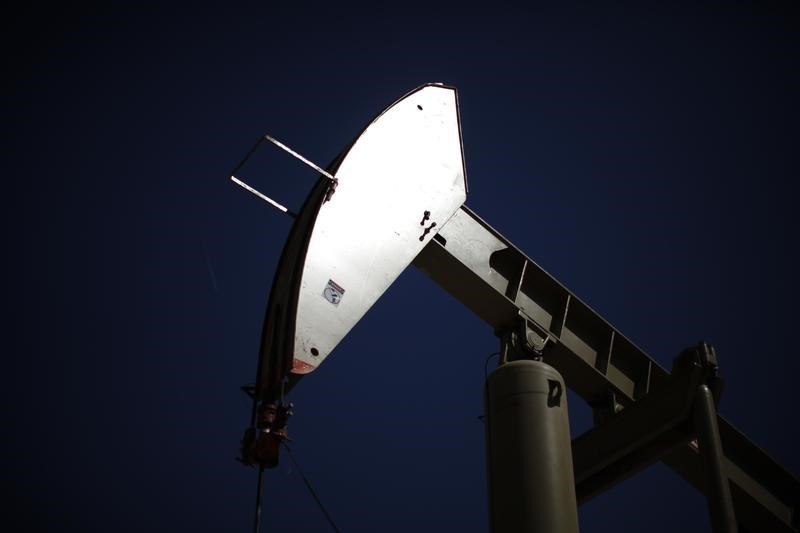By Yuka Obayashi and Andrew Hayley
BEIJING (Reuters) -Oil prices ticked up in Asian trade on Wednesday, as markets weighed weak demand indicators from top importer China and the prospect of further U.S. rate hikes against potential supply tightness.
rose 13 cents, or 0.2%, to $84.16 a barrel by 0305, GMT while U.S. West Texas Intermediate crude was at $79.82 a barrel, up 18 cents, or 0.2%.
Both benchmarks lost about 0.5% on Tuesday.
Markets await hints on the outlook for interest rates when Federal Reserve officials and policy makers from the European Central Bank, the Bank of England and the Bank of Japan head to Jackson Hole, Wyoming, for an annual meeting later this week.
“Investors are reluctant to take big positions ahead of the Jackson Hole symposium as they want to find clues for the next step by the U.S. Federal Reserve,” said Hiroyuki Kikukawa, president of NS Trading, a unit of Nissan (OTC:) Securities.
“Concerns over higher interest rates and sluggish demand in China are expected to outweigh tightening supply from OPEC+ in the short term.”
China, the world’s second-largest economy, is considered crucial to shoring up oil demand over the rest of the year. Its weak growth has frustrated markets as pledged stimulus has fallen short of expectations, including a smaller-than-expected cut in a key lending benchmark on Monday.
On the supply side, Saudi Arabia has volunteered to cut output by another 1 million barrels per day (bpd) from July through September, and Russia plans to reduce exports in August by 500,000 bpd.
These moves are part of a deal among members of the Organization of the Petroleum Exporting Countries and its allies, a grouping know as OPEC+, to curb supplies and support prices.
In the United States, crude stocks continued to fall, dropping by about 2.4 million barrels in the week ended Aug. 18, according to market sources citing American Petroleum Institute figures on Tuesday. That was a slightly smaller draw than a drop of 2.9 million barrels analysts expected in a Reuters poll.
“Following the massive draw of 6.2 million barrels a week earlier, overall supplies conditions still lean on the tighter end,” said Jun Rong Yeap, a market strategist at IG in Singapore.
The weekly report from the Energy Information Administration, the statistical arm of the U.S. energy department, is due at 1430 GMT on Wednesday.
Read the full article here










